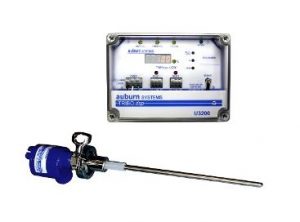 Three ways to eliminate unplanned downtime
Three ways to eliminate unplanned downtime
September 7, 2017 REDWIRE is news you can use from leading suppliers. Powered by FRASERS.
Posted by Firing Industries Ltd
The business objective of FIRING INDUSTRIES LTD. is to consult with clients to select and supply technically complex PRO... Read more
Subscribe
Free REDWIRE e-newsletter

It’s no secret that there are huge costs associated with unplanned downtime. This is why it is critically important to maintain equipment in production facilities. Consider industrial dust collectors, for example. When these systems go down, they almost always takes associated systems down, too. And since many facilities require that dust collectors used for pollution control operate at all times, any malfunction can result in a mandatory shutdown. With that in mind, Auburn Systems has three tips to help prevent downtime caused by dust collectors in industrial facilities.
Tip 1: Prevent abrasion from damaging bags
Abrasion occurs when the incoming dust impacts the bags at a high volume or speed, or when physical contact occurs between the filters and other parts of the unit. Abrasion is the primary cause of early bag wear and leaks; however, this can be avoided. For example, abrasion from incoming dust can be stopped through the use of baffle plates, which distribute the incoming air more evenly and slow it down, causing the majority of the dust particles to fall out before reaching the filters. In addition, proper inlet design prevents the air from directly impacting the bags upon entry.
Tip 2: Change all bags at once to avoid endless spot changing
A very common mistake is to replace only individual filters as they spring leaks. Rather than save money, this creates substantial amounts of downtime, and raises overall particulate emissions. If the leaks aren't caught early enough, this can lead to a situation where maintenance personnel are constantly “putting out fires” rather than seeing good operation from their systems. In addition, changing one filter at a time can cause new filters to fail faster because, when a new filter is put with older, dirtier, more seasoned filters, the lower resistance causes more air to rush through it and the surrounding filters, causing them to fail sooner.
Tip 3: Use triboelectric monitoring
The use of triboelectric monitoring for industrial dust collectors is one of the best methods to prevent downtime. Tribo monitoring, like the TRIBO.dsp series of electrostatic particulate monitors from Auburn Systems, can help detect and prevent downtime due to bag failure. With a properly installed triboelectric monitor, operators can receive alerts that predict a leak before it occurs. This advanced warning means that impending failures can be found early enough that they can be addressed at the next available maintenance outage. In addition, when a leak does occur, technicians can save time searching for the filter with the tribo system’s ability to pinpoint the leaking filter down to a particular unit, compartment or row of bags.
TRIBO.dsp electrostatic particulate monitors are available in Canada from Firing Industries. For more tips from Auburn, download the company’s free eBook: An Engineer’s Guide to Baghouse Maintenance.
To learn more, contact Firing Industries’ application-sales engineers at ddubuc@firing.com or (877) 688-0974.
Share
Posted by Firing Industries Ltd
The business objective of FIRING INDUSTRIES LTD. is to consult with clients to select and supply technically complex PRO... Read more
